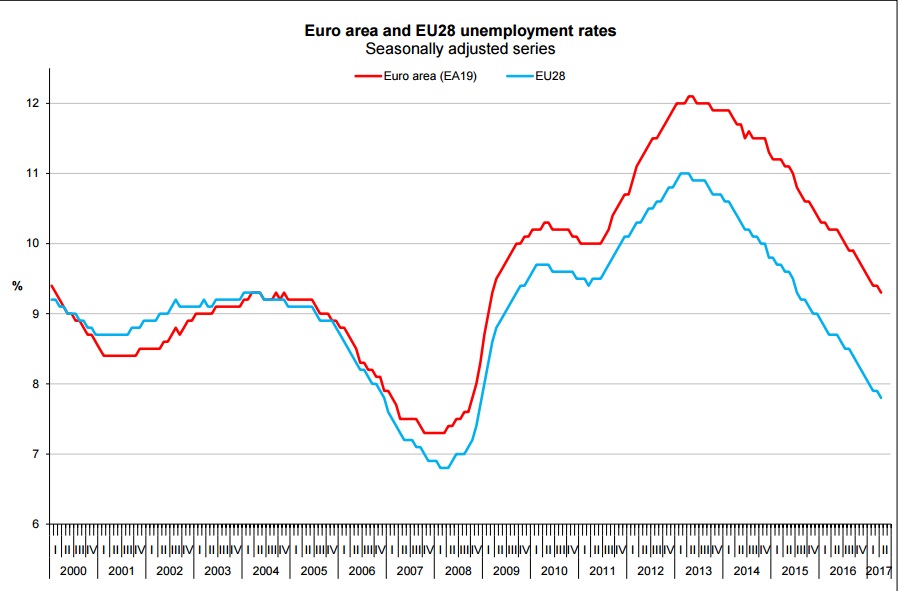Euro Zone, as well as the European Union, is facing one of the most diverse economic and Labour market recoveries in the history. Partial reforms pursued by governments coupled with the ultra-easy monetary policy from European Central Bank (ECB) has led to the rise in employment across Euro Zone, however, any level that can be called as normal, still remains far off. The latest employment number shows that unemployment declined to 9.3 percent in April, which is the lowest reading since the ‘Great Recession’ of 2008/09.
As of now, inflation is weakening again with thanks to lower oil and other commodities price, however if inflation do return before fragmentation is removed ECB would face critical policy choices, weather to raise rates to prevent any overheating of stronger economies with lower unemployment rate or to keep easing to bolster growth across the weaker ones like Greece, Spain, Cyprus. The latest employment number shows that unemployment declined to 9.3 percent in April, which is the lowest reading since the ‘Great Recession’ of 2008/09. However detailed country-wide number shows continued fragmentation.
European Central Banks (ECB) and the governments need to coordinate together to pursue reforms in such a way that economic recoveries converge and fragmentation gets reduced.
As of latest employment report fragmentation still high, despite improvement in the overall labor market –
- Euro area unemployment rate is at 9.3 percent in April 2017t, which is the lowest since the 2008/09 financial crisis. However, a lot is still to be done as more than 13 million still remains unemployed in Euro area.
- Fragmentation is quite large. While Germany enjoys lowest unemployment rate in the region at 3.9 percent, Greece and Spain have their rates at 23.2 percent and at 17.8 percent.
- Even in France, almost one in every ten is unemployed.
- Euro area’s third largest economy, Italy is suffering unemployment as high as 11.1 percent.
In recent days, ECB has been struggling with its monetary policies; record easing and negative rates, still not pushing inflation higher. It’s time the governments do step in to continue with their reforms.



 Gold Prices Fall Amid Rate Jitters; Copper Steady as China Stimulus Eyed
Gold Prices Fall Amid Rate Jitters; Copper Steady as China Stimulus Eyed  Best Gold Stocks to Buy Now: AABB, GOLD, GDX
Best Gold Stocks to Buy Now: AABB, GOLD, GDX  FxWirePro: Daily Commodity Tracker - 21st March, 2022
FxWirePro: Daily Commodity Tracker - 21st March, 2022 































